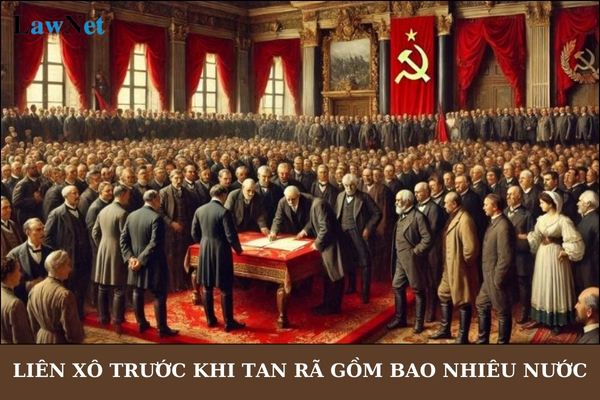How many countries were included in the Union of Soviet Socialist Republics (USSR) before it dissolved? What are features of grade 12 History in Vietnam?
How many countries were included in the Union of Soviet Socialist Republics (USSR) before it dissolved?
The Soviet Union, also known as the Soviet Socialist Republics (officially the Union of Soviet Socialist Republics), was a federal state that existed from 1922 to 1991. Prior to its dissolution, the Soviet Union comprised 15 member socialist republics. Below is a list of the countries that were part of the Soviet Union before its dissolution:
Russia, Ukraine, Belarus, Uzbekistan, Kazakhstan, Georgia, Azerbaijan, Lithuania, Moldova, Latvia, Kyrgyzstan, Tajikistan, Armenia, Turkmenistan, Estonia.
After the dissolution of the Soviet Union in 1991, these countries became independent nations. Most joined the Commonwealth of Independent States (CIS). However, the Baltic states (Lithuania, Latvia, Estonia) did not join the CIS as they chose a path of complete independence and separation from Russian influence.
Note: The content is for reference only!

How many countries were included in the Union of Soviet Socialist Republics (USSR) before it dissolved? What are features of grade 12 History in Vietnam? (Image from Internet)
What are features of grade 12 History in Vietnam?
Based on Section I of the General Education Program for the History subject at the upper secondary level issued with Circular 32/2018/TT-BGDDT (amended by Article 2 Circular 13/2022/TT-BGDDT), the features of grade 12 History in Vietnam are as follows:
- History is a subject within the Social Sciences group, comprising 2 parts: a compulsory part for all students and an elective part for students who choose History according to their career orientation at the upper secondary level.
- The History subject aims to help students form and develop historical competencies, which are components of scientific competencies, while also contributing to the formation and development of core qualities and general capacities as defined in the overall program.
- The History subject plays a leading role in educating patriotism, national pride, historical and cultural traditions, helping students appreciate and apply historical lessons to solve real-life issues, develop vision, strengthen humanistic values, a sense of community, tolerance, and benevolence; contributing to the formation and development of qualities of Vietnamese citizens and global citizens in the era's development context.
- The History subject develops students' historical thinking, systematic thinking, critical thinking, skills in exploiting and using historical sources, recognizing and presenting history in both diachronic and synchronic logic, connecting the past with the present.
- The History subject helps students recognize the scientific and practical value of history in modern social life, understand and have a love for the history and culture of the nation and humanity; contribute to guiding students in choosing careers such as social sciences and humanities research, diplomacy, management, tourism activities, cultural industries, media and communication, etc.
- The History subject program systematizes and consolidates general history knowledge at the fundamental education stage, while helping students delve deeper into core historical knowledge through topics, and study programs on world history, Southeast Asian history, and Vietnamese history. The teaching methodology of the History subject is carried out based on fundamental principles of historiography and modern educational methods.
What are the requirements to be achieved in the Grade 12 History subject in Vietnam?
Based on Section IV of the General Education Program for the History subject at the upper secondary level issued with Circular 32/2018/TT-BGDDT (amended by Article 2 Circular 13/2022/TT-BGDDT) stipulating the requirements to be achieved in the Grade 12 History subject:
(1) Requirements related to fundamental qualities and general competencies
The History subject contributes to the formation and development of essential qualities and general competencies according to levels appropriate for the subject and educational level as stipulated in the overall program.
(2) Requirements related to specific skills
The History subject program helps students develop historical competencies based on basic and advanced knowledge of world history, regional history, and Vietnamese history through a system of topics and projects on political, economic, social, cultural, and civilizational history. Historical competencies include components such as exploring history; understanding and historical thinking; applying learned knowledge and skills.
The specific manifestations of historical competencies are presented in the following table:
- Exploring history:
+ Identifying types of historical documents; understanding the content, exploiting, and using historical documents during the learning process.
+ Reconstructing and presenting events, characters, and historical processes in both speaking and writing form, from simple to complex; determining historical events in specific spatial and temporal contexts.
- Understanding and historical thinking
+ Explaining the origins, dynamics of historical events from simple to complex; indicating the development process of history in both diachronic and synchronic dimensions; comparing similarities and differences between historical events, explaining cause-and-effect relationships in the historical process.
+ Providing personal comments and evaluations on historical events, characters, processes based on historical awareness and thinking; understanding the continuity and changes in history; thinking from different perspectives when analyzing, evaluating, or seeking answers about an event, character, or history process.
- Applying learned knowledge and skills:
Drawing lessons from history and applying historical knowledge to explain real-life issues; on this basis, having the ability to self-explore historical issues, develop creative capabilities, access and process information from different sources, have awareness and capability for lifelong historical self-learning.

